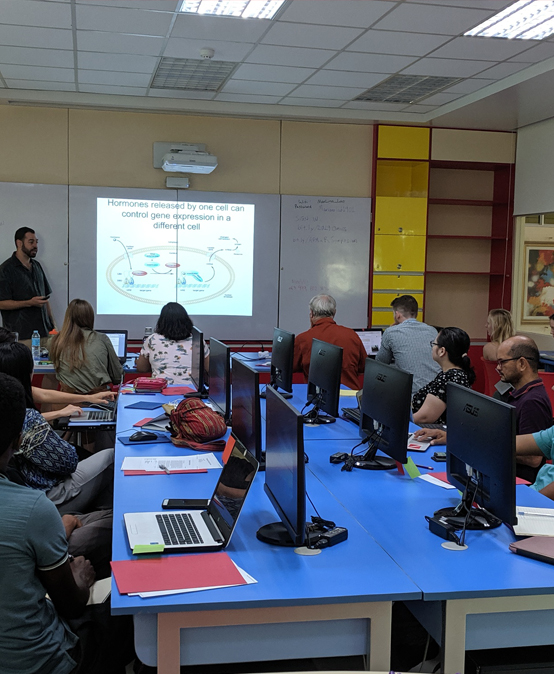
SU, ODU hold marine research symposium; train Filipino, American researchers
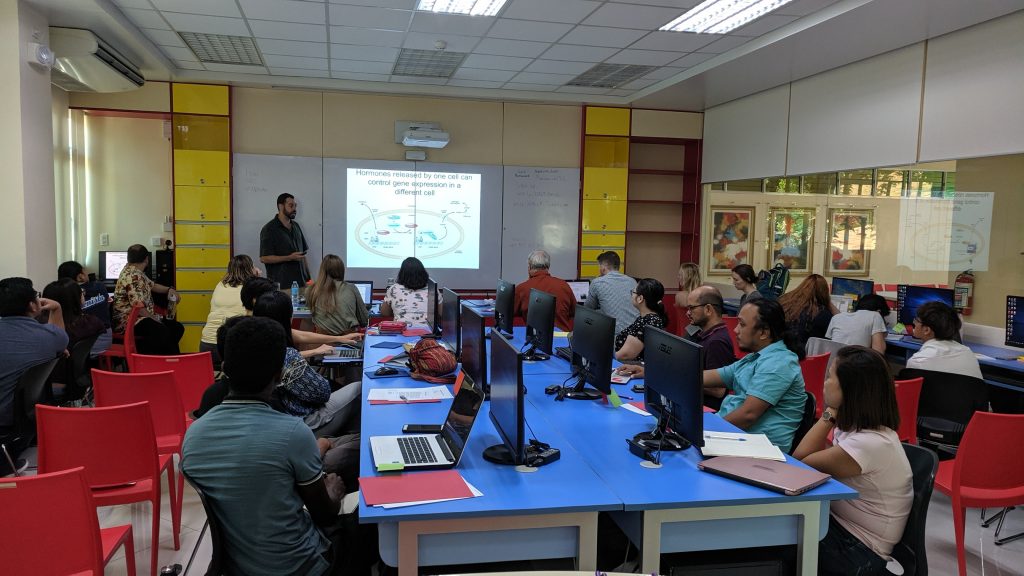
Participants of the Silliman University (SU) and Old Dominion University (ODU)’s ‘Omics and Bioinformatics Workshop use the computers at the Mariano & Lina Lao Activity Center, May 29.
Silliman University (SU), through the SU Angelo King Center for Research and Environmental Management (SUAKREM) and in partnership with US-based Old Dominion University (ODU), held the 2019 Advances in Philippine Marine Research (APMaR) Symposium, May 27 at the Audio-Visual Theatre 1 to promote networking among US and Philippine scientists.
Abner A. Bucol, SUAKCREM researcher, said the symposium is part of the ‘Omics and Bioinformatics Workshop, a training component of SU and ODU’s five-year project, the “Partnerships for International Research and Education (PIRE): Centennial Genetic and Species Transformations in the Epicenter of Marine Biodiversity” in the Philippines.
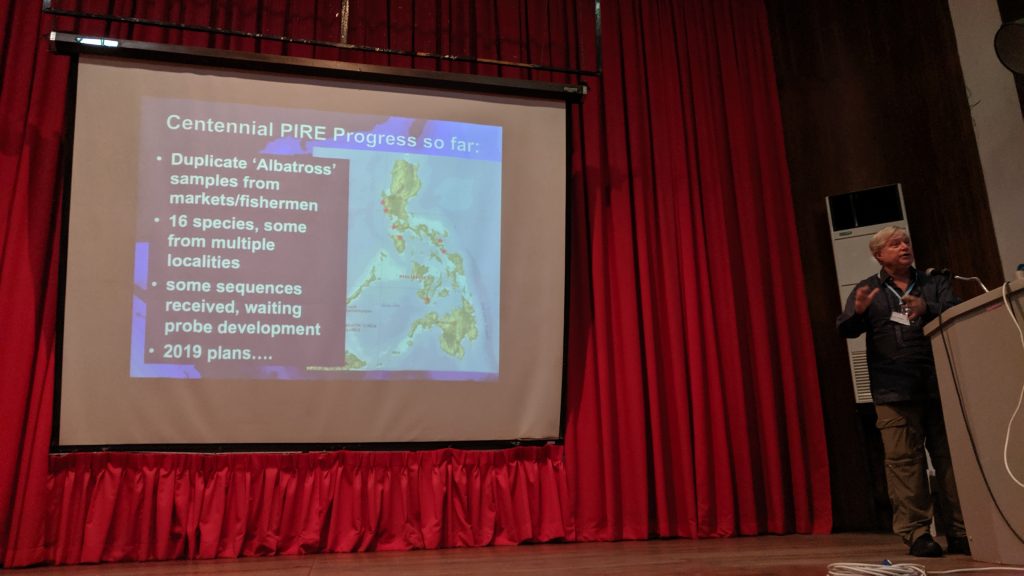
Dr. Kent E. Carpenter, ODU professor of biological sciences and principal investigator of the Partnerships for International Research and Education (PIRE) Project in the Philippines, describes the goals and scope of the project.
The Philippines PIRE project, funded by the US National Science Foundation, is a collaborative effort of marine biologists from SU, ODU, Arizona State University (ASU), Rutgers University, Texas A&M University Corpus Christi, and the Smithsonian National Museum of Natural History to investigate changes in evolution, connectivity, and the community composition of marine fishes that have taken place over the past century in the Philippines as the world’s center of marine biodiversity. It also provides graduate and undergraduate students from the said universities with theoretical and practical research experience in advanced molecular methodology in the field and in the laboratory.
Dr. Kent E. Carpenter, ODU professor of biological sciences, leads the project as its Principal Investigator with Dr. Angel C. Alcala, National Scientist and SUAKCREM chair, as the Project Leader in the Philippines.
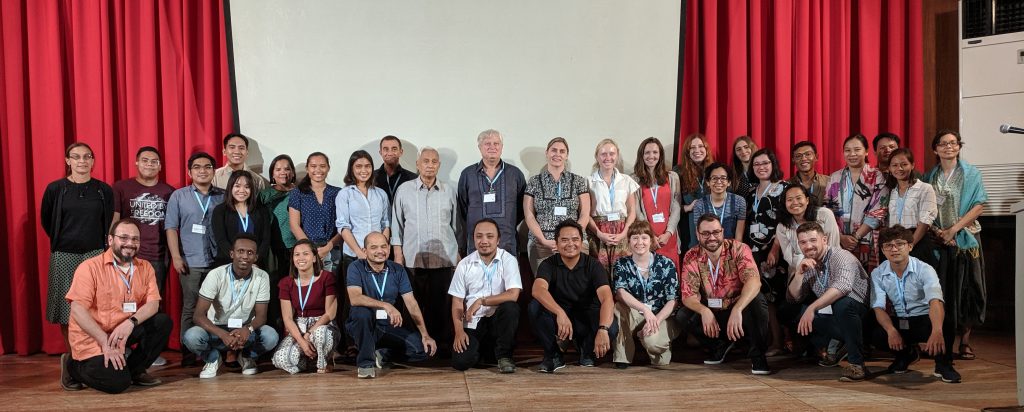
Participants of the 2019 Advances in Philippine Marine Research (APMaR) Symposium, May 27 at the Audio-Visual Theatre 1.
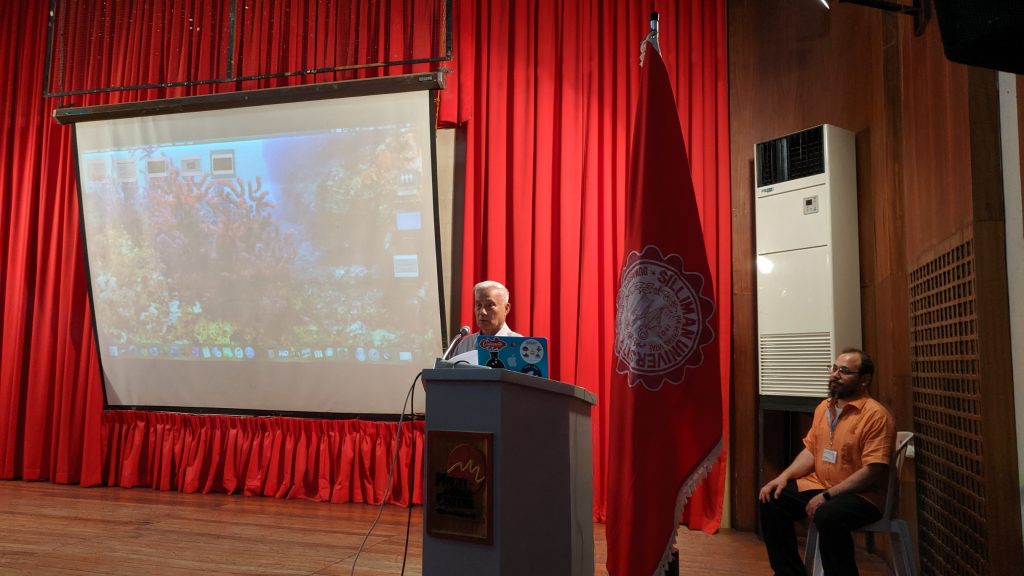
Dr. Angel C. Alcala, National Scientist and SU Angelo King Center for Research and Environmental Management (SUAKREM) chair, introduces Dr. Kent E. Carpenter as the main speaker at the APMaR Symposium.
During the APMaR symposium, Dr. Alcala welcomed the attendees and introduced Dr. Carpenter, who then explained the PIRE project.
Bucol said the morning presentations during the symposium covered the aims and scope of the PIRE project, followed by presentations from Philippine scientists and collaborators on current and ongoing marine research in the Philippines.
The symposium presenters included five researchers and graduate students from Philippine educational institutions and nine from US-based universities, namely: SU, Mindanao State University (MSU) Tawi-Tawi, Large Marine Vertebrates Research Institute Philippines (LAMAVE), ODU, ASU, Arkansas State University, and University of Wisconsin-Stevens Point (UWSP).
Under the PIRE project, SU and ODU launched the first ‘Omics and Bioinformatics Workshop in 2018 at SU. This year, the ‘Omics and Bioinformatics Workshop ran from May 28 until June 11 with the same goal of introducing participants to the skills and knowledge needed to develop a project using genomics or transcriptomics.
Bucol said the workshop participants were also taught how to run analyses using high performance computing resources like the ODU’s Turing Community Cluster, which contains more than 190 multi-core compute nodes each containing between 16 and 32 cores and 128Gb of RAM. The Turing cluster allows researchers to “use parallel programming applications for quick processing of the large amounts of data generated by the latest genomics methodologies,” added Bucol.
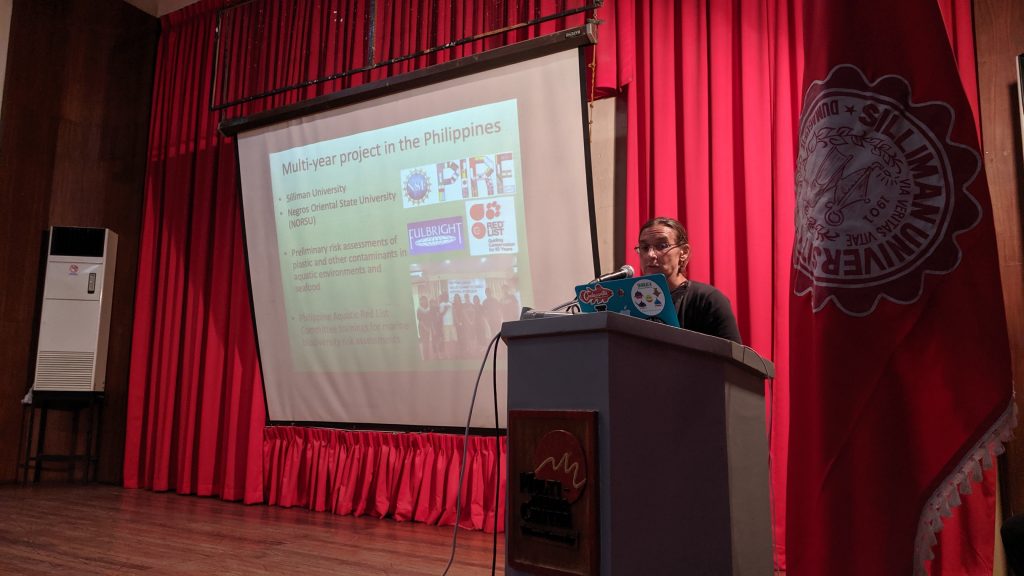
Dr. Beth Polidoro, ecotoxicologist from Arizona State University, describes some preliminary results of her study, “Preliminary Risk Assessment of Microplastics and Associated Contaminants in Marine Resources of Negros Oriental, Philippines,” during the APMaR symposium.
The workshop, divided into three levels, included lectures and hands-on computer-based sessions on: basic bioinformatics skills and how to use genetics and transcriptomics to answer biological questions for Beginner ‘Omics; creation of genomic and transcriptomic libraries and processing the resulting raw sequence data followed by basic analyses for Intermediate ‘Omics; and advanced analyses of SNP (single nucleotide polymorphism) data in R for Advanced ‘Omics.
The workshop had 44 participants from the following Philippine and foreign institutions: SU, Negros Oriental State University, LAMAVE, MSU Tawi-Tawi, University of the Philippines (UP) Mindanao, UP Marine Science Institute, UP Cebu, UP Visayas, University of Sto. Tomas, Western Philippine University, ODU, ASU, UWSP, Texas A&M University Corpus Christi, Florida Fish and Wildlife Conservation Commission, Rutgers University, National Fisheries Research & Development Institute, Nha Trang University (Vietnam), and Hokkaido University (Japan).
Before SU and ODU collaborated on the ‘Omics and Bioinformatics Workshops, the two universities first worked together under the Coral Triangle-PIRE project in 2011, with Dr. Hilconida P. Calumpong, SU Institute of Environmental and Marine Sciences (IEMS) director, leading the project for SU.
(Photos by Wirawan Purwanto from Old Dominion University)


